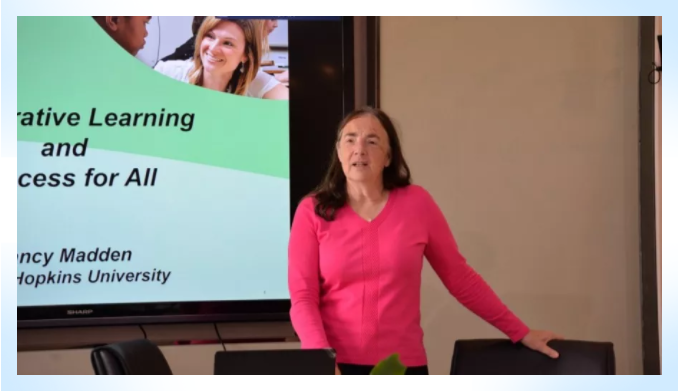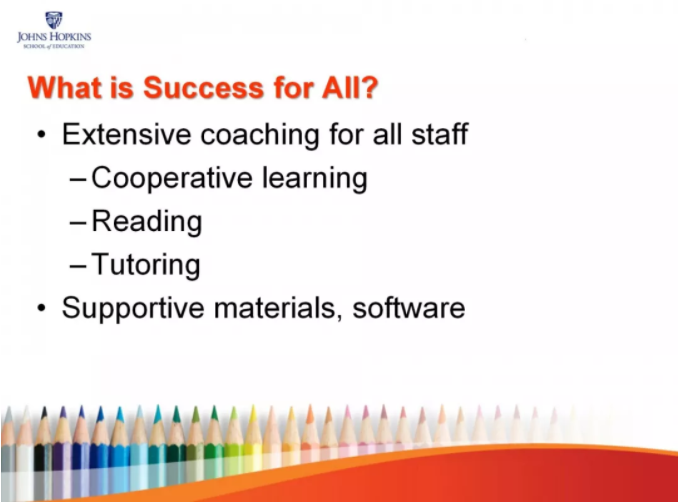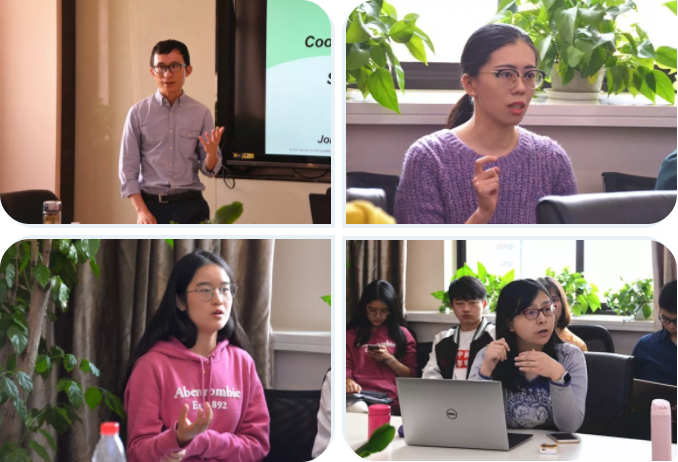Success for All: Experts from Johns Hopkins University Shared the Research Results of Cooperative Learning
2019-12-03


On the morning of October 25th, Professor Robert Slavin, Director of the Johns Hopkins Center for Educational Research and Reform, and Nancy Madden, Professor of the Johns Hopkins Center for Educational Research and Reform and CEO of Success for All, visited the 148th Huaxia Curriculum Forum, they made a report entitled “Evidence-based Reform and Success for All”. The report was presided over by Mr. Xiao Sihan, Deputy Director of ICI. Professor Chen Shuangye and Associate Professor Huang Xiaorui, Dr. Xie Chen, postdoctoral fellow of the Peak Plan of the Ministry of Education, and teachers and students of ICI attended the forum.
At the beginning of the report, Professor Madden shared the efforts she and Professor Slavin have made over the past three decades to improve students’ learning outcomes, especially the Success for All (SFA) project, as well as the motivation and goals of the project. The SFA project aims to provide schools with effective ways for children to achieve team rather than individual success; this method works not only in one school, but also can be accepted and replicated by other schools. She believed that “cooperative learning” is such a method.


Professor Nancy Madden
Center for Educational Research and Reform, Johns Hopkins University

Then, Professor Madden took the teaching of reading as an example to illustrate how the original “silent” classroom changes when children learn in groups, revealed that cooperative learning has considerable advantages over traditional competitive classrooms. She emphasized the important factors in cooperative learning and distinguished structural cooperative learning from informal cooperative learning.



Professor Robert Slavin
Director of Center for Educational Research and Reform, Johns Hopkins University

Professors Madden and Slavin then complement each other and explain the work they have done, including designing clear and appropriate goals for students at each small step; creating situations for students who are “silent” for a long time to express their views and seek or provide help; and providing teachers with specific teaching materials and specific courses to let them know how to act. They also introduced how to create teaching strategies based on evidence to meet different needs, how to carry out different levels of evaluation activities, how to provide support for teachers to change the teaching process, and how to arrange tutors to assist students in cooperative learning.



At the end of the report, the two professors interacted with the students presented. Professor Madden first discussed the difference between “tutoring” and “instruction”. Then, the two professors jointly answered the students’ questions about the team composition and regrouping, as well as the students’ interest and willingness to study in the group. Professor Slavin stressed that in cooperative learning, students’ wishes and different needs should be fully respected, and they should be given the freedom to decide whether to join the study group or not, as well as the opportunity to change their choices. Then, combining their own research and personal experience, the two professors answered a series of questions that the students were concerned about.